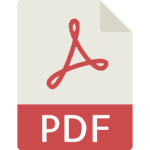-
×
 Instructions to Set a Hearing and to Complete a Notice of Hearing
Instructions to Set a Hearing and to Complete a Notice of Hearing
- Vendor:
Lawyers Help Lawyers
-
×
 Motion to Compel Discovery and DNA Sample - Sex Trafficking
Motion to Compel Discovery and DNA Sample - Sex Trafficking
- Vendor:
Special Victims Advocates
-
×
 Defendat's Combined Motions in Limine
Defendat's Combined Motions in Limine
- Vendor:
Lawyers Help Lawyers
-
×
 Plaintiff's Unopposed Motion for Leave to File Brief in Excess of Ten Pages
Plaintiff's Unopposed Motion for Leave to File Brief in Excess of Ten Pages
- Vendor:
Leonard Martinez
-
×
 Motion for Summary Judgment - Auto Injury
Motion for Summary Judgment - Auto Injury
- Vendor:
Hometown Legal Team
Subtotal: $182.99












 Instructions to Set a Hearing and to Complete a Notice of Hearing
Instructions to Set a Hearing and to Complete a Notice of Hearing  Motion to Compel Discovery and DNA Sample - Sex Trafficking
Motion to Compel Discovery and DNA Sample - Sex Trafficking  Motion for Summary Judgment - Auto Injury
Motion for Summary Judgment - Auto Injury